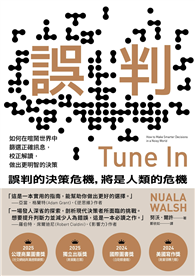Time and place are of the greatest significance for scientific inquiry about human lives. As we seek to better understand the nature and rhythm of the life course in modern societies, its effective analysis and explanation simultaneously becomes more pressing and more complicated. This information is crucial for developing and reforming social policies, services, and interventions aimed at improving human development and welfare. Yet as our scientific treatments have become more elaborate, they have also become more fragmented within and between academic disciplines, across the study of specific life periods, and by method.
| FindBook |
有 1 項符合
Lives in Time and Place: The Problems and Promises of Developmental Science的圖書 |
 |
Lives in Time and Place: The Problems and Promises of Developmental Science 作者:Settersten 出版社:Routledge 出版日期:2018-12-19 語言:英文 規格:平裝 / 328頁 / 22.9 x 15.2 x 1.8 cm / 普通級 |
| 圖書館借閱 |
| 國家圖書館 | 全國圖書書目資訊網 | 國立公共資訊圖書館 | 電子書服務平台 | MetaCat 跨館整合查詢 |
| 臺北市立圖書館 | 新北市立圖書館 | 基隆市公共圖書館 | 桃園市立圖書館 | 新竹縣公共圖書館 |
| 苗栗縣立圖書館 | 臺中市立圖書館 | 彰化縣公共圖書館 | 南投縣文化局 | 雲林縣公共圖書館 |
| 嘉義縣圖書館 | 臺南市立圖書館 | 高雄市立圖書館 | 屏東縣公共圖書館 | 宜蘭縣公共圖書館 |
| 花蓮縣文化局 | 臺東縣文化處 |
|
|
圖書介紹 - 資料來源:博客來 評分:
圖書名稱:Lives in Time and Place: The Problems and Promises of Developmental Science
|










